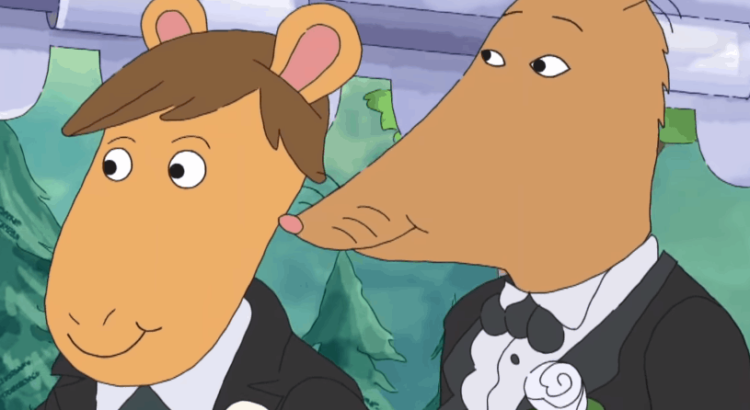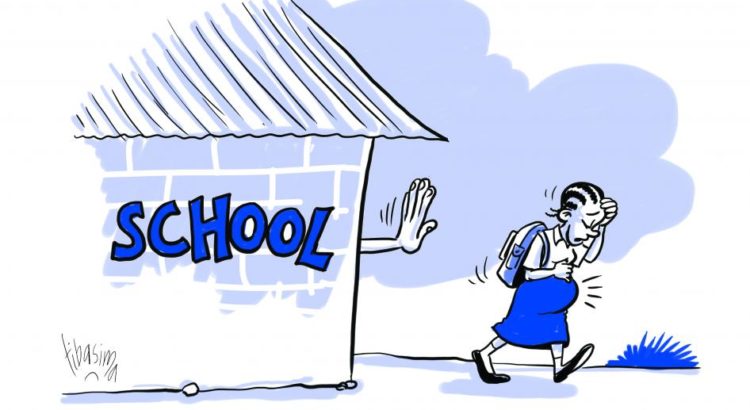Por: bamapolitics.com/29-05-2019
The best educators don’t just reinforce the ideas we already know, they expand our boundaries of knowledge by exposing us to the real-life challenges and conditions that exist outside of our mental bubbles. To prepare our children for the future, they must be aware of the diversity that exists in the world outside of Alabama. They need to be fully exposed at an early age to families who speak other languages, have different religious views, and may have different familial structures than our own.
Diversity isn’t just important in a civilized society, but an important concept in the business world where the best ideas come from a wide array of minds. Children who aren’t exposed to diversity and taught to celebrate it are being set up to fail both at work and as responsible and productive citizens.
So, I was deeply disappointed – but not surprised, when Alabama Public Television (APTV) refused to air the Season 22 premiere episode of children’s cartoon Arthurcalled “Mr. Ratburn and the Special Someone” where Arthur’s teacher Mr. Ratburn gets married to his same-sex life partner Patrick.
After facing public backlash, Mark McKenzie (the Director of Programming at APTV) said the decision not to air the episode came down to airing programs that parents can ‘trust’ their children to watch. In an interview with People magazine, Marc Brown (the creator of the animated series) disagreed with their decision.
«I’m really proud of that episode. And I will defend it to anybody who wants to talk about it. Why shouldn’t their teacher marry another man? We all know people who are gay, who are trans, and it’s something that is socially acceptable. Why is there this discomfort that it takes a leap into our national media? I don’t want children or people who are different to feel excluded. That’s not the kind of world we want to live in. And we want children to be educated so they can see there’s not just one type of family. Everyone should feel represented. I think we did that with Arthur.» Mac Brown
Roughly 10% of the world population (and that includes Alabama) identify as either lesbian, gay, bisexual, transgender, or queer (LGBTQ). What some describe as homosexual behavior has been observed in over 1,500 other animal species. Pretending the LGBTQ community (or any other minority) doesn’t exist not only damages our society as a whole, but it is deadly to the community who is marginalized and who are disproportionately suffering from violence, abuse, homelessness, and suicide.
The Gay & Lesbian Alliance Against Defamation (GLAAD) recently released their annual Studio Responsibility Index (SRI) report that examines not only the visibility of LGBTQ characters in films but how those characters are portrayed. While great progress has been made in the seven years since SRI has been grading film studios, in 2018 out of the 110 releases from major studios only 20 (or 18.2%) of them included LGBTQ characters, and no studio has yet earned the top grade of excellent. According to their five-tier grading system, two studios received ‘failing’ ratings (Disney and Lionsgate) and three received ‘insufficient’ (Warner Brothers, Paramount, and Sony). The remaining two (Fox and Universal) received ‘good’ grades. It will be interesting to see now that Disney has acquired Fox how those grades may change next year.
The LGBTQ being represented accurately in the media isn’t just educational for those that are outside of our community, but it is vital education for the LGBTQ! I graduated from Huntsville High School in 1989 and the only visible students were two lesbians who were treated very harshly, and my first love committed suicide at the age of 15, which only drove me deeper into the closet of denial. I remained in the closet until after I joined the Navy and was finally exposed to people outside of the Alabama bubble. Until I was 20 years old, I honestly thought I was the only gay man in north Alabama. It sounds silly to say that aloud now, but because there was no LGBTQ visibility in the media, I felt alone, depressed and hopeless. I thought I was somehow broken, but it turned out that it was our society that was broken. Through exposure and education, that tide is now turning.
Because our state is so far behind on education, I do not support a boycott of donations to APTV, but I do ask people to please take time to express their views to them. The Parents and Friends of Lesbians And Gays (PFLAG) recently started a petition to thank PBS for airing the Arthur episode, so I have asked them to also forward all of those comments to APTV when completed and they agreed to do so. APTV could have taken a leading role in bettering our society through education, but unfortunately chose otherwise.
It is hard to find a member of the LGBTQ community who hasn’t been a victim of discrimination and in many cases much worse. The violence and suicide rate of LGBTQ has skyrocketed in recent years. And while one in five transgender Americans will experience homelessness at some point in their lives, the current administration is rolling back all of the legal protections for them.
My challenge to my fellow Americans and Alabamians: We have to not only deeply examine our own behavior against people who may be different than ourselves, but we must quickly put an end to victimizing the ‘other’ for political gain. There is an entire political party whose platform is based on irrational fear and marginalization of minorities, and many who try to mask their bigotry and racism under the cloak of their religion.
As a nation, we can’t fix a real problem that we refuse to even recognize as a problem and you don’t have to fully understand Constitutional Law to see the problem. The preamble to the United States Constitution states:
«We the People of the United States, in Order to form a more perfect Union, establish Justice, insure domestic Tranquility, provide for the common defence, promote the general Welfare, and secure the Blessings of Liberty to ourselves and our Posterity, do ordain and establish this Constitution for the United States of America.»
Preamble U.S. Constitution
However, before there was a Constitution there was the Declaration of Independence that stated:
«We hold these truths to be self-evident, that all men are created equal, that they are endowed by their Creator with certain unalienable Rights, that among these are Life, Liberty and the pursuit of Happiness.»
Declaration of Independence
When we refuse to recognize an entire swath of our population, we are invalidating the very principles on which our great country was founded.
Our nation is not yet a ‘perfect Union’ but if we all come together as Americans, we can work towards achieving the goal that our founders envisioned. That all people are created equal by their creator, and that equal justice under the law is possible. That is a vision worthy of this nation, and of the world. Let’s work to make that a reality – and hopefully, APTV will eventually see the value in those founding principles.
Fuente de la información: https://www.bamapolitics.com/28438/lgbtq-visibility-educational-vital-education/








 Users Today : 9
Users Today : 9 Total Users : 35460362
Total Users : 35460362 Views Today : 12
Views Today : 12 Total views : 3419112
Total views : 3419112